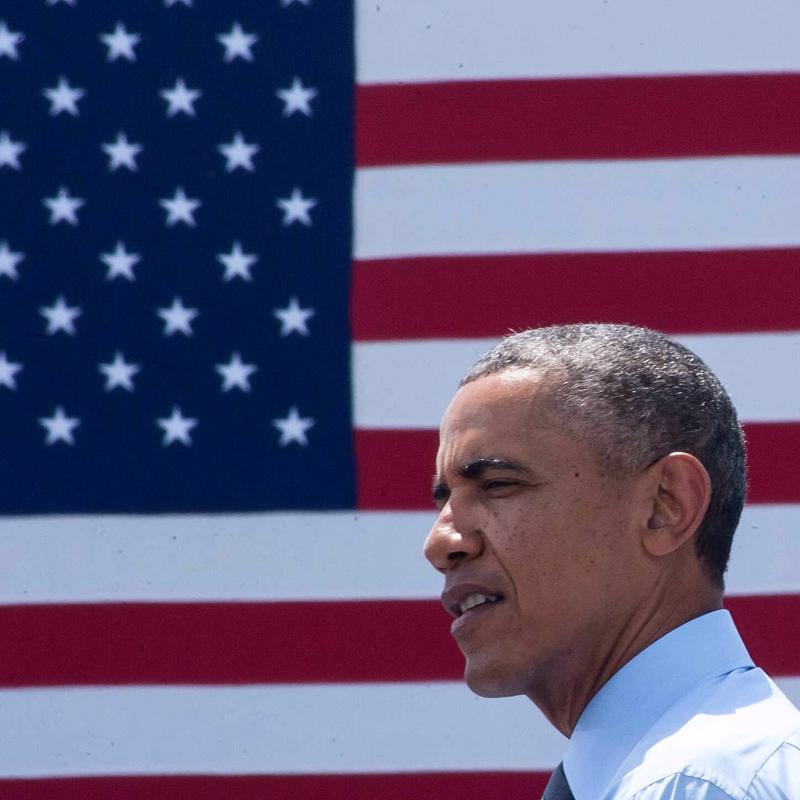

The Department of Transportation is releasing regulations for self-driving cars. The agency noted that these guidelines will include a 15-point Safety Assessment governing the "safe design, development, testing and deployment of automated vehicles," according to Forbes.
These regulations will apply to the testing and launching of self-driving vehicles from manufacturers including Ford, Tesla, Google and Uber. The new regulations aim to outline the responsibilities of both federal and state governments in an effort to build a more uniform, national policy for automated cars.
Aimed at clarifying the vague and non-uniform state regulations, the new policy will outline the responsibilities of both the federal and state government in an effort to build a national policy for automated cars. Jeremy Carlson, automotive technology analyst for IHS technology, talked about what the regulations will mean for the industry.
"Prior to this announcement my question was: Are they going to continue to let states, as is often the case, act as the laboratories and then put together a national framework to bring it all together?" he said. "It looks like they're being a bit more assertive, and that's probably a good thing."
A presidential opinion
President Barack Obama chimed in, praising the innovation and efforts of tech giants to make automated driving safer. In an op-ed article published in the Pittsburgh Post-Gazette, Obama encouraged the self-driving technology but advised that while safety regulations are crucial, it is important that they do not get in the way of industry advancement.

"Regulation can go too far," he wrote. "Government sometimes gets it wrong when it comes to rapidly changing technologies. What's more, the quickest way to slam the brakes on innovation is for the public to lose confidence in the safety of new technologies."
Pres. Obama acknowledged that the future of self-driving cars has the potential to change the way we drive and, overall, the way that we live.
Most are ready for the future
By almost all indications - both in the private and government sectors - cars will be driving themselves, literally steering passengers to their intended destinations all with the flick of a switch or the push of a button, sooner rather than later. And while the widespread fruition of self-driving may still be several years away, a majority of Americans are eager to hand over the keys to the wave of the future, based on the results of a recent poll.
According to a new survey conducted by AlixPartners, a Boston-based management consultancy firm, more than 70 percent of motorists are ready and willing to purchase vehicles in which machines handle the driving, accelerating, and braking, Bloomberg reported. So much so that 8 in 10 would pay extra just to have the option.
Mark Wakefield, AlixPartners head of consulting and the poll's principal investigator, told the news agency that's it's little wonder the overwhelming majority of Americans are keenly interested in autonomous vehicles, as the daily commute can be mind numbing. Wakefield commented on the inconvenience of commuting.
"It has gotten worse every decade," he said. "Autonomous driving increases the economic utility of the commuter and it makes their life better. When you describe what it can do, they like that."
Will autonomous vehicles get rid of traffic jams?
Not everyone is so sure that autonomous vehicles will be the cure to traffic tie-ups, however. Researchers from KPMG believe that because of the novelty factor surrounding self-driving, there will likely be a significant increase in volume levels on the nation's roadways, The Associated Press reported earlier this year.
In 2015, Americans racked up 3.1 trillion miles of highway travel. Transportation researchers forecast that after accounting for only millennials and baby boomers using autonomous vehicles - the U.S.' two largest generations - highway travel is expected to climb another 2 trillion miles per year over the next 35 years.
"Millenials can't recall what life was like without the Internet."
€‹Millennials - who range between 18 and 35 - have lived through a technological innovation period unlike any other. This may explain why young Americans tend to put more faith in technology than their older contemporaries.
As J.D. Power and Associates discovered, over half - 56 percent - of motorists born between 1975 and 1994 and 55 percent of drivers born from 1995 to 2000 say they trust autonomous technology. The same can't be said for people born in the mid-1940s to mid-1960s, as only 41 percent said self-driving technology is something they'd willingly use.
"The level of trust is directly linked to the level of interest in a new technology among automobile buyers," explained Kristin Kolodge, J.D. Power's Executive Director of Interaction and Health Management Innovation Research. "Acceptance can be increased with exposure over time and experience with automated technologies. But trust is fragile and can be broken if there is an excessive number of incidents with automated vehicles."
Comfortable with that you know
Familiarity - or lack thereof - may explain why many people in China have been slow to embrace autonomous vehicles, contrary to the latest indications of where Americans stand on the issue. In order to better introduce citizens of the world's most-populated country to how they operate, more coordination is necessary between the government's various sectors.
Li Shufu, chairman of China's largest privately owned car group, Zhejiang Greely, noted how in 2015 alone, private vehicle registrations in China rose 15 percent. Contrary to KPMG's findings, he believes that self-driving will cut down on traffic congestion, thanks in large measure to it being a safer mode of travel.
"People do want autonomous vehicles," Wakefield told Bloomberg. "People still buy safety. And they do believe these vehicles can be done safely." Driverless vehicles may be going mainstream earlier than some people think. AlixPartners forecasts them hitting the roadways as early as 2020.